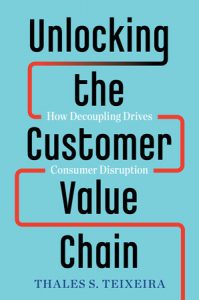
Modern Business Models
This article, focusing on AI, platforms, and network effects, distinguishes between products that are “like air” (that one needs continuously and is critical for survival) versus “like hair cuts” (that one needs only once in a while and can do without). The authors describe the notion of a ‘modern business model’, and demonstrates how these companies are more resilient.





